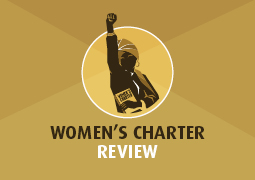
Parliament will, for the next coming months, be gathering information about the plight of women in every district across the country as part of an ongoing process to review the Women’s Charter.
This announcement was made by the Deputy Chairperson of the National Council of Provinces (NCOP), Ms Sylvia Lucas, in a video conferencing engagement on the Women’s Charter Review, in ZF Mgcawu District Municipality in the Northern Cape.
“2019 marked 25 years since the adoption of the 1994 Women’s Charter for Effective Equality. This milestone necessitated a 25-year review of the entire women’s rights regime, in order to take stock of and assess the achievements garnered since 1994. The objective was also to critically assess the systemic weaknesses that continue to impede the realisation of gender equality in South Africa,” she said.
The Deputy Chairperson said this year (2020), marking the 25th anniversary of the Beijing Platform for Action, was intended to be groundbreaking for gender equality, but instead, with the outbreak of Covid-19, even the limited gains made in the past decades are at risk of being eroded.
She said the pandemic was deepening pre-existing inequalities, exposing vulnerabilities in social, political and economic systems which continue to amplify the impact of the pandemic on women.
“Across every sphere, from health to the economy, security to social protection, the impact of Covid-19 is acutely exacerbated for women and girls simply by virtue of their gender,” Ms Lucas said.
For the coming months, she added, Parliament will be criss-crossing the country, district by district, gathering information on the very specific challenges that women are facing in each district and locality.
“We will also seek to find ways of turning theory into practice and to change gender relations for the better. We will do this by embarking on a robust review process of the Women’s Charter, which will be underpinned by a strong law reform element.
“While we identify the daily structural barriers to gender equality, we will also focus on reviewing the policies and legislation currently in place, with the aim of identifying policy gaps and gaps in legislation for amendment,” Ms Lucas explained.
Other participants in the virtual summit included the Statistician-General, Mr Risenga Maluleke; the Deputy Minister of Women, Youth and People with Disabilities, Prof Hlengiwe Mkhize; the Mayor of ZF Mgcawu; as well as legislators, councillors and members of civil society.
Deputy Minister Mkhize said the process of reviewing the Women’s Charter was an opportunity to reflect on how far the country has come in implementing the commitments made in Beijing 25 years ago, and to also look at new commitments.
The Deputy Minister spoke strongly against sexual harassment at the workplace, places of worship, and at home, and other violations like rape and femicide, saying these further stifle progress that women make to move forward to be respected in society.
“If we want to tackle poverty, women have to be at the centre. Also our cultural practices such as ‘ukuthwala’ (a forced or arranged marriage) should not be holy cows, they must be questioned, they force young girls to leave school early and become perpetually dependent on abusers,” the Deputy Minister argued.
She also said since the Women’s Charter of 1954, there was a need to take a careful look at the National Gender Machinery, a mechanism that seeks to end all forms or gender inequalities in South Africa.
By Sakhile Mokoena
26 May 2020

